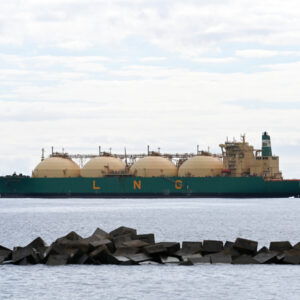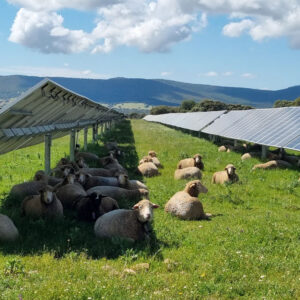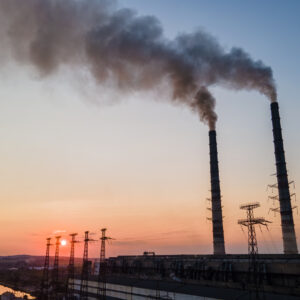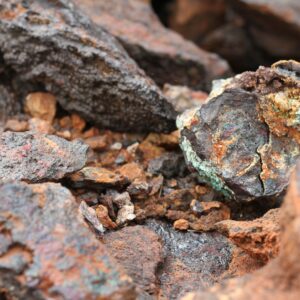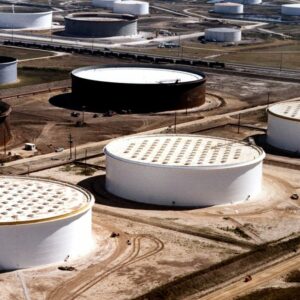When President Donald Trump sat down to lunch with his Japanese counterpart this month, talk turned quickly to how Tokyo could help realise a decades-old proposal to unlock gas in Alaska and ship it to U.S. allies in Asia. Trump and his energy tsar Doug Burgum framed the venture as a way for Japan to replace Middle...
U.S. and India Revamp Bilateral Energy, Trade Pacts
A little over two years ago, representatives of President Joe Biden and Indian Prime Minister Narendra Modi reiterated a commitment to a “strategic clean energy partnership,” stressing that “climate and clean energy collaboration should promote energy access, affordability, energy justice, while supporting sustainable economic growth and just energy transitions.” And just last September, the Biden and Modi...
5 takeaways in the EU’s big agriculture (and food) vision
The European Commission published its long-term “vision”for the European Union’s agriculture and food policy on Wednesday, setting out ambitions for a sector that has been at the center of political protests, trade tensions and regulatory headaches. Agriculture Commissioner Christophe Hansen’s paper lays out a roadmap through 2040, promising better conditions for farmers, fairer supply chains, and...
Which Way Forward? All-Cost Climate, Geopolitical Conflict, or Energy and Economic Prosperity?
On February 12th, Shell released a report detailing three visions for how the future of energy security could proceed. The report included the new scenario, “Surge,” and re-published two modified scenarios, “Archipelagos” and “Horizon,” describing the future of the energy economy. Each scenario describes a vision for the energy economy based upon a narrative foundation of the world.
US paper industry asks Trump to seek lighter EU deforestation rules
The U.S. paper and pulp industry is lobbying President Donald Trump’s administration to ask the EU to declare the United States deforestation-free, a step that could make it easier for exporters to meet the bloc’s new environmental rules. From December, the European Union’s anti-deforestation policy will ban imports of commodities linked to forest destruction. Brussels already delayed the...
India and France sign SMR and AMR partnership letter of intent
French President Emmanuel Macron and India’s Prime Minister Narendra Modi have agreed a Declaration of Intent for establishing a partnership on advanced modular reactors and small modular reactors after talks in France. They also visited the multinational ITER nuclear fusion project. As well as the declaration of intent, the two renewed a memorandum of understanding...
On Chile’s coast, a rare earths mining operation seeks to uplift locals and counter China
While the hilltop overlook here boasts a splendid view of the Pacific coast, the land all around us is far less impressive. Municipal garbage trucks rumble along gravel roads to an adjacent landfill. Stumps and branches of dead eucalyptus trees form huge piles, refuse left behind by a former commercial forestry operation. Aclara Resources, the...
Bipartisan groups in Congress introduce bill to protect strategic petroleum reserve
A bipartisan group of U.S. senators introduced a bill to limit, not prohibit, the sale of crude oil from the U.S. Strategic Petroleum Reserve (SPR). The Banning SPR Oil Exports to Foreign Adversaries Act was filed in the U.S. Senate by Sens. Ted Cruz, R-Texas, John Fetterman, D-Penn., and Elissa Slotkin, D-Mich. U.S. Reps. Chrissy...
Beer, not tariffs, will boost US aluminum capacity
If in doubt, double down. Seven years ago President Donald Trump ordered 10% tariffs on US imports of aluminum with the stated aim of increasing domestic primary metal production. They haven’t worked. This time the tariff is going to be 25% without “exceptions or exemptions” effective March 4. Together with a similar-sized duty on steel imports,...
Baltic countries sever final power ties with Russia
Europe’s Baltic nations have cut themselves off from the Russian electricity grid for the first time in history, ending a precarious, decades-long energy partnership with Moscow. Lithuania, Latvia and Estonia will connect to the EU’s power system on Sunday, roughly 20 years after joining the bloc and cementing a westward trajectory. The Soviet-designed network will still...
